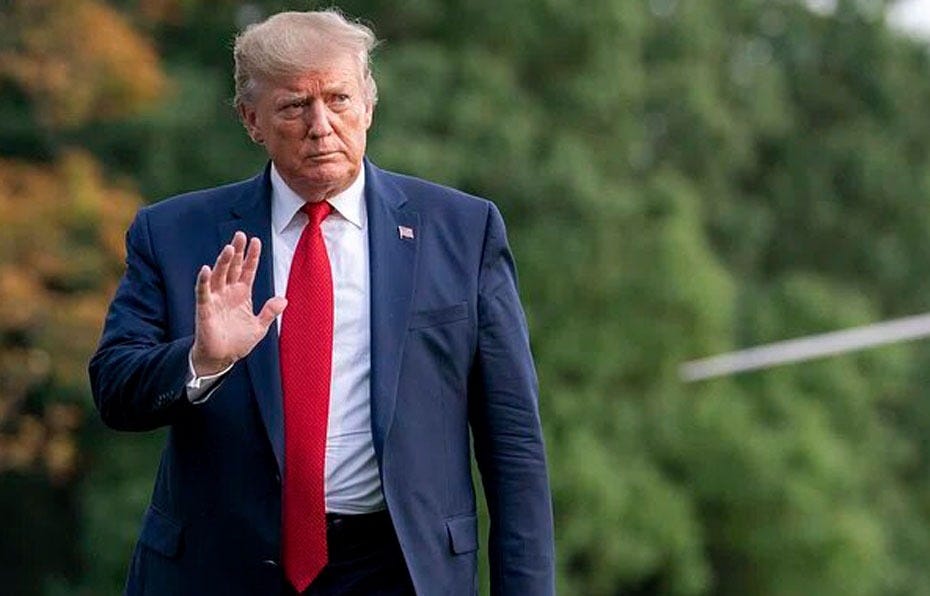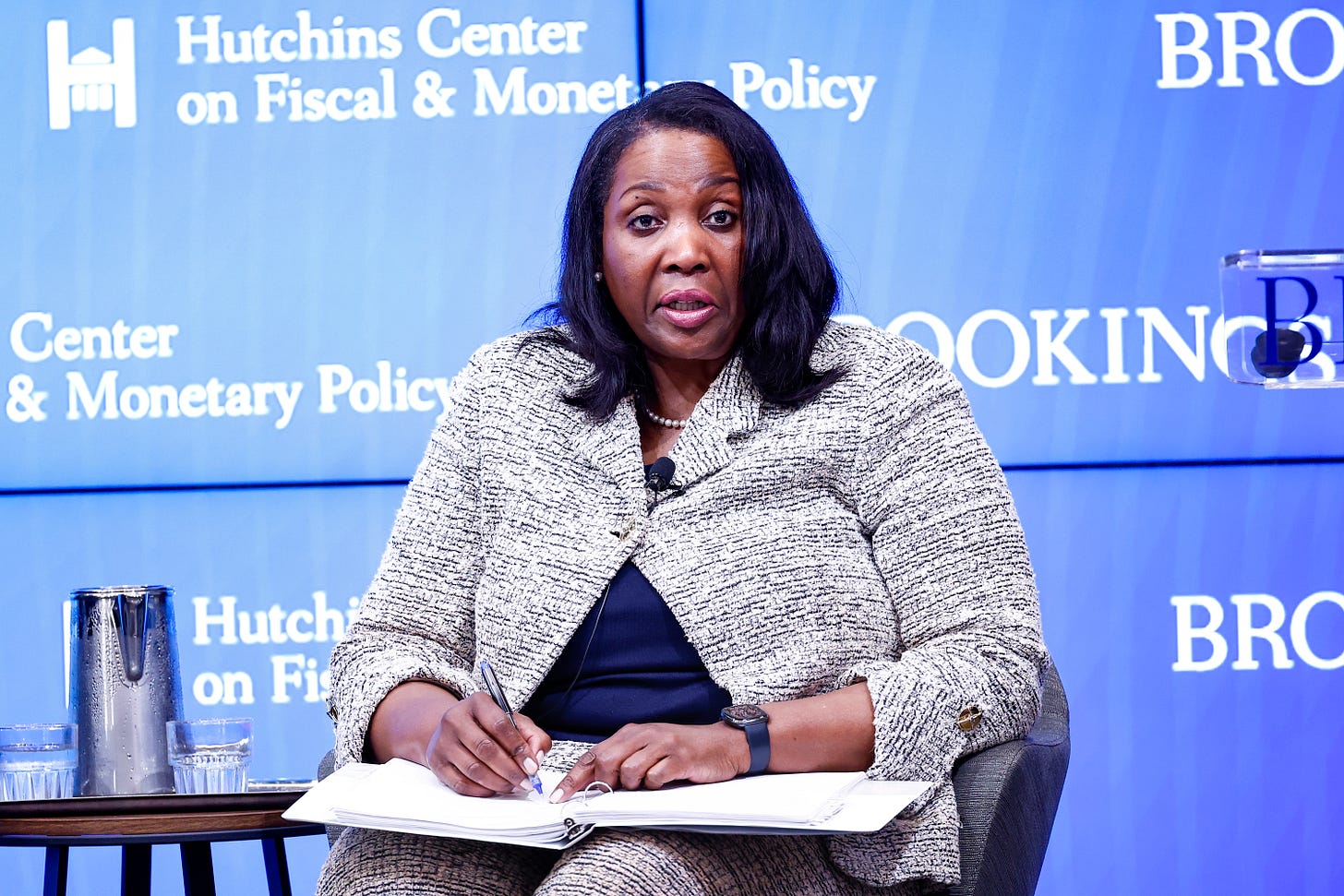What America is giving up
How to turn the exorbitant privilege into an emerging market
My Dad loves to raise his hand. If he attends a talk by a theologian or scientist and fails to ask a question at the end — and to be fair they tend to be good ones — he will admonish himself on the way home. I recently asked him why and he said it was for two reasons:
First, because he’s chaired enough events where no one has asked a question and it is embarrassing for the speaker. And second, because you don’t get many opportunities to pick the brains of smart people who think differently from you. I would add a third, which is his self-confidence in having something of value to add.
So when Dad visited Poland not long after the fall of the Berlin Wall, he asked his host who the communist system benefited. After all, even the worst ideologies serve someone. “If you were talented and from a poor background, they couldn’t do enough for you,” the man said. Then, as if having to explain that fire is hot, he added: “Of course, party elites benefited most.”
The law rules
Mindful of word counts and the fact that many of you will be reading this newsletter in sight of a hotel buffet (I hope the orange juice is freshly squeezed), I don’t intend to list every action President Donald Trump has taken to undermine the US economy.
This month alone, he has fired the head of the Bureau of Labor Statistics for reporting disappointing job numbers, attempted to remove a Federal Reserve Governor for declining to cut interest rates alleged mortgage fraud and doubled tariffs on many Indian exports to 50%.
In isolation, each decision is damaging. Accurate economic data gives businesses and individuals the confidence they need to make informed decisions. Central bank independence allows for lower interest rates. While a stable tax system promotes long-term investments and reduces opportunities for corruption.
But this is not purely about unrelated economic acts of self-harm1. These decisions, taken together, both seek to and succeed in undermining America’s single greatest asset: the rule of law. In its place would be another nation where the only question that matters is, “Does it please the dictator?”
Of course, the rule of law is not a prerequisite for economic growth2. Russia’s economy is still trudging along, Saudi Arabia is still exporting oil and China has gone from having a GDP per capita of around $350 in 1990 to becoming the world’s second-largest economy.
In fact, let’s dwell on China for a moment. In the absence of political liberalisation, the Chinese Communist Party (CCP) has overseen one of the most remarkable economic transformations in recorded history, raising three-quarters of a billion people out of poverty. (Though, as others including the historian Stephen Kotkin note, the CCP was also responsible for placing them there in the first place.)
But there are limits to that growth. Not because the Chinese people cannot manufacture world-class goods and provide high-value services, but because the CCP’s number one priority is to maintain the monopoly power of the CCP. Further economic liberalisation risks that monopoly, because a flourishing private sector is where independent sources of wealth and power are created. And something so dangerous cannot be allowed to stand.
Good-bye to all that
It is verging on the bathetic to list what the US is giving up by way of bullets3, as if the end of the American century can be organised by PowerPoint. But here we go:
The global reserve currency — the exorbitant privilege4 that keeps US borrowing cheap
The power to impose financial sanctions — and have the world follow suit
Outsized foreign direct investment
Influence over global technical standards
Foreign students — who fund universities and stay on to build tech unicorns
Soft power (see: Coca-Cola, people all around the world walking around with ‘I ❤️ NY’ t-shirts)
These will not disappear overnight. But the process has already begun.
Life’s not fair
Historically, this exorbitant privilege has been clearest at moments of great peril. The 2008 financial crisis was a disaster of America’s own making. But the fact that the US was seen by investors as the place you move your money in a crisis meant that capital flowed in.
This kept interest rates lower than they would otherwise have been, allowing the US to borrow and spend more freely than its European counterparts. The life of a financial hyperpower is not fair!
Another way to think about this is to observe the relationship between US borrowing costs and the value of the dollar5. Historically, higher yields have been a signal of a strong American economy. But since Trump’s “liberation day” in early April, this has started to break down, with yields rising because of a perception that US debt (and the wider political system) is riskier. This is a pattern more often seen not in the issuer of the global reserve currency, but an emerging market.
What will America get for all this? A few hundred billion dollars in import taxes here, a 10% stake in Intel there. But as a British male who came of age during the unipolar moment, I’m reminded of a conversation between the recently divorced Kirk Van Houten (father of Milhouse) and Homer Simpson.
Kirk: I sleep in a racing car, do you?
Homer: I sleep in a big bed with my wife.
America is giving so much up. And, as my Dad might ask, for what?
Further reading from The New York Times
Nor, of course, is the rule of law a guarantee of boom times — as citizens of Britain and the European Union can attest
List inspired by Adam Posen, President of the Peterson Institute for International Economics
The term coined in the 1960s by then French finance minister, Valery Giscard d'Estaing




